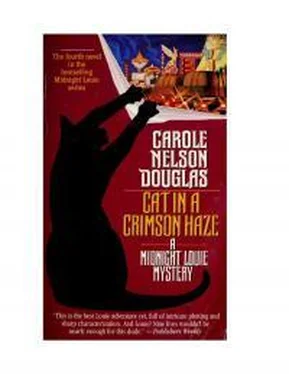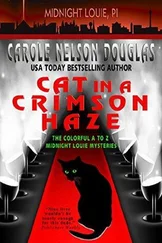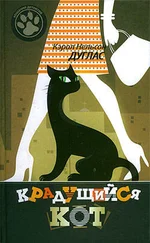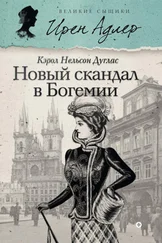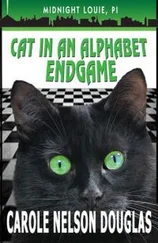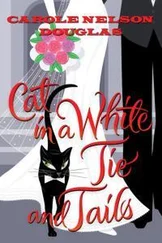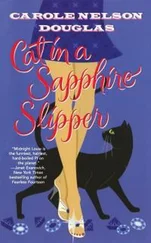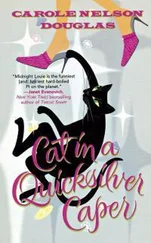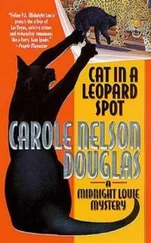And they did. Salvation. Their own souls. And the salvation of other souls.
"You know something about alcoholism. Sister."
"Are you surprised, Matthias? After all those years of teaching? Oh, we nuns were supposed to be utter innocents, but we saw more than everyone thought. We knew why certain fathers never came to parent-teacher meetings, why some mothers wore this sad, cringing, broken look, and their kids too." She shook her head, her mouth curled as if tasting spoiled milk.
"Especially their kids."
Matt digested this confession. ''Sure, the kids themselves knew what went on at home, but the rest of us kids never thought about those things either," he said carefully. "We would just get quiet when certain parents were mentioned, as if they were unspoken bogeymen, but we never wondered why. 'Mr. Johnson' was just 'like that.' Maybe mean, or maybe erratic and surely to be gingerly avoided. We never thought in terms of alcoholism, or abuse. We just thought that was the way life was. It was normal."
"That's the trouble!" The flat of Seraphina's hand slapped her chair's ornate wooden arm.
"There's nothing normal about alcoholism and abuse, no matter how common it might be, or might have become. Kids accept the unacceptable because they know nothing different. All those children. All those years. If we--we all . . . I!--had been better informed, had been more honest with others and ourselves, had been educated in the terrible cost of all addictions, we could have intervened."
Matt knew real regret when he heard it. He had heard enough formal confessions, despite the sacrament's fading practice. The large, welcome space had suddenly shrunk to the claustrophobic dimensions of an old-fashioned confessional. The room seemed to darken with deep self-examination. Seraphina's worry perfumed the air like a sensor dispensing the odor of penance, she blamed herself for something, perhaps for years of somethings. Now, she could do nothing about it but rue the golden old days."
He felt needlessly cruel. He didn't want to stir up the demons of ancient guilts; he knew their many guises too well in his own sleepless nights. "Holy innocents." That was what he and Seraphina had been encouraged to be, each in his or her own way, both in their own generations. Holy innocents had a way of discovering years later that they had been neither.
"They say the family's disintegrating now," she was saying. ''Nonsense. These hidden flaws were always there. We just denied and ignored them."
"Like the problems of priests," he put in.
Her voice grew sharp, even fearful. "What problems did you have with the priesthood, Matthias?"
"None," he said with a relieved laugh. "I had problems with myself, with my reasons for hiding within the priesthood. I admit that I was literally swaddled in that 'holy innocence' you mentioned. I craved it, I sometimes think. I was even worse off than you; I never saw the seeds of trouble sown in the seminary. The church was so rapt with the ideal of the priesthood that no one thought to wonder that some young men who would choose a sexless life in the modern secular age might have a natural barrier to an ordinary, lay life of marriage and children."
"I've never talked with a former priest. That shows you how sheltered I am, so don't apologize. Matt. And don't blame me for being . . . curious. What was so . . . rotten about the church's pattern of screening for the priesthood that all these awful cases are hitting the newspapers now?''
"Unholy innocence. In seminary, the emphasis was on suppressing the sex urge, on desexualizing, and even demonizing women. No one was sophisticated--or honest--enough to admit the existence of other sexual preferences, other ways of being sexual. In a way, pederast priests, or gay priests who were not celibate, could almost convince themselves that they were worthier than heterosexual priests who were not celibate."
"Didn't you wonder about gay seminarians, at least?"
"No. We were all so young, so feverishly dedicated to the vision of a religious vocation, so determinedly neuter. I've read the memoirs of other ex-priests. Some express a fear of being gay, but I never even noticed that. We may have made crude celibacy jokes among each other, but we only discussed the real nitty-gritty of our sexuality with our spiritual director. What about nuns?"
Sister Seraphina reared back at the very thought. "No one has ever asked me that. We are almost all elderly now, I fear, and the aged achieve a neuter state so naturally, at least we nuns did. And women molest children far less than men, perhaps only because we are reared to be more law-abiding than from any moral superiority. I do think the role of motherhood is more intense and therefore less likely to be abused in such perverse ways. But what do I know about that? Or you? Perhaps I fool myself with the veil of innocence again. Still, I think I would know.
Nuns live communally; we may be more docile by upbringing. We have not the priest's temptation to move alone through the church, to make solitary decisions."
"Oh, pastors may look like they lord it over their flock, but, believe me, priests are not the free agents you suspect they are. Nor bishops. Not even the Pope."
"Have you lost your faith. Matt?"
The question was timidly put, coming from Sister Superfine, but it was the most serious issue yet. He paused before answering.
"I don't think so. I recognize that I had a true religious vocation. I understand that finding it once was my salvation. I will never lose respect for the many dedicated religious I knew, no matter what the headlines read. I will never judge a brother, or a sister." He could feel his lips trying to smile. ''I am impatient with bureaucracy, with hypocrisy, with lack of tolerance, and sometimes the aisles of Mother Church seem jam-packed with all three. I recognize all the modern conflicts: the church is patriarchal; its institutionalized sex-phobia has caused endless crisis in the lives of laity and celibate clergy. I'm not decided on every shade of these issues. My conscience may ultimately decree a position that puts me outside the doors if those inside them can't accept what I must be. I don't know yet."
Seraphina shuddered. "Such . . . questions you raise. I'm glad I'm retired, waiting as usefully as I can until I'm called to the place where there are only answers. I still don't understand why you left."
"To do that, you'd have to understand why I entered the priesthood."
''And--?" Her ungoverned eyebrows lifted quizzically, like an ancient, anxious terrier's.
Matt had never seen Sister Seraphina at such a genuine loss. It made her look very old.
He answered in a rush, like a seven-year-old kid making his first confession. He was surprised by how practiced it all sounded,
"I entered the priesthood to become perfect as my heavenly Father is perfect. I entered the priesthood to become the perfect Father. I entered to avoid sex and marriage and children because I was terrified of all three. Don't worry, I have never broken a priestly vow, but not because of my faith or strength. How could I be tempted by what terrified me? I am named for the apostle who replaced Judas after the betrayal and death of Christ, yet I found myself finally walking away from the shoes of the fisherman at the age of His death--thirty-three."
"But why, Matt? You were a model student, and devout even as a boy, the perfect altar boy, in fact. Was it perfection ... was it--?" Sudden suspicion enlarged the pupils of her eyes to matte black. Her voice became a whisper. "Matt, as an altar boy, you weren't ... abused. By Father--?"
He shook his head. ''That would have been almost easier to overcome."
''Easier. Dear Lord, Matt, what? My ignorance paralyzes me. I was your teacher. I was so proud when I learned you'd entered the priesthood, and now you tell me that decision was an escape that had begun to form when I knew you as a little boy. What had I failed to see?"
Читать дальше
